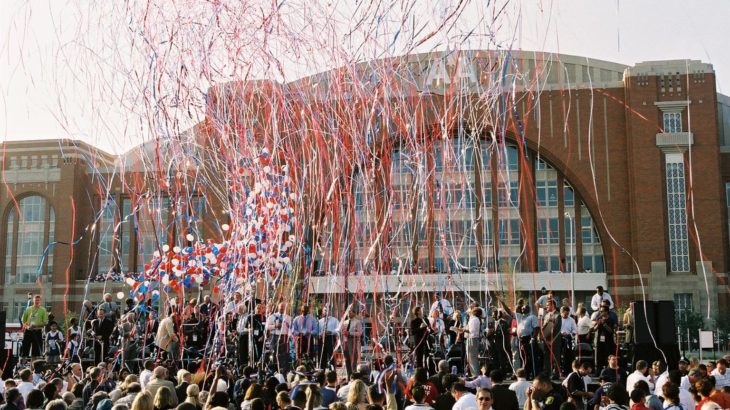Two years into Brad Mayne’s tenure as CEO of Center Operating Co., it was announced that Mark Cuban was buying the Dallas Mavericks. The deal was revealed during a press conference at the under-construction American Airlines Center’s marketing center.
Cuban purchased the Mavericks prior to the arena opening in 2001, which meant he would be very involved in the process of building and operating the venue. He bought out Ross Perot Jr., which made him managing owner. There were five additional owners of the Mavericks.
Having never met Mark Cuban, Brad took the opportunity at the press conference. It went somewhat like this:
“Hi Mark, I’m your CEO for the operating company for the arena. I know you don’t have a lot of time, and we can talk later, but what advice would you give me as one of your CEOs of one of your multiple companies?”
“I have two things to tell you.
° If it ain’t broke, break it
° If everyone is thinking the same way, no one is thinking.
Nice to meet you, Brad.”
It took Brad about a year to figure out exactly what Mark really meant — to break your model.
“My first thought was, so I have to have a particular chair in a particular location for the ticket that has been sold because it’s reserved. He told me to break that system. How do I break that?”
Multiple interactions later, Mark came up with an idea. One of the companies he owned was a theater company that showed movies. “He put me and the CEO of Landmark Theater Co. together. We came up with this concept that we have these parking lots that aren’t used except when we have events, 200 of 365 days, so we put movies on in those parking lots.”
The concept took off exponentially, from a bicycle race in the 72-acre Victory Development to a closed circuit telecast of the Tom Hicks-owned Liverpool Reds playoff game on the large screen in Victory Plaza, a ticketed event.
This is not to say arenas weren’t doing other events elsewhere, but it became a priority in Dallas to break the normal model of events in the arena.
Brad realized you have to be the person who says “What if?”
There was to be a private club in the arena. The question was more than how many seats and what to offer members. The bigger picture was what else could they do with the club – like meeting space for community events. And then there were banquets on the arena floor, the hallowed ground where two teams played.
“Back in 1998, those were unique ideas,” Brad said. “Most arenas didn’t have club space back then.”
Mark Cuban was known for dreaming up a lot of different ideas and concepts. Brad and crew would have to vet them.
Brad’s go-to was, “That’s interesting, Mark; let me see what we can come up with.”
To Mark Cuban’s credit, he always listened to the follow-up report thoughtfully. Sometimes Brad would have to report, “we’re still working on it, here are the challenges we’re facing.”
Mark: “Okay, maybe that idea isn’t going to work for us.”
“It was his decision, not mine, not to go forward with it.” — Based on a true story as told to Linda Deckard
(Editor’s Note: This is one of a series of stories on the making of American Airlines Center, Dallas.)
